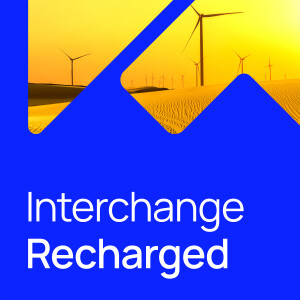
The Tide is Turning on Marine Power Investment
 2023-03-31
2023-03-31
When we think of renewables, we think of wind and solar. Investment in these established, scaled technologies dominates the global renewable market; almost half of new investment in renewables is solar. Onshore wind investment in 2020 topped $40 billion, a record year. The downside of wind and solar however, is that it’s sporadic. We can’t predict how much wind or sun we’ll get, and so backup power generation is needed. One thing we can predict is the tides.
Wave power has grown steadily with record investment from the US Department of Energy in 2022 funding new projects, but power generation from undersea currents hasn’t yet seen the same investment. In October 2022, the DOE announced a further $35 million in funding from the Bipartisan Infrastructure Law to advance tidal and river current energy systems. However, compare these grants to the total $20 billion invested in wind in 2021 and there’s a clear mismatch. In the US, there are no large-scale tidal plants and there are only 3 projects that exist worldwide.
What have we seen in the last few years in tidal power? In 2021, in waters off the northern-most tip of Scotland, the 02 tidal turbine started turning its massive blades for the first time. The largest commercial-scale turbine in the world is a project from Scottish marine power company Orbital and represents the culmination of 15 years of project development. In 2023, in the waters of the Etel Estuary in Brittany, France, another steel turbine is turning, powered by the tides to a maximum speed of 27 RPM. This was France’s promising, but stalled foray into tidal power restarting, this time by another tidal power manufacturer – NovaInnovation. Backed by the EU’s 5 million euro Element Marine Renewables Technology Development Scheme, the 50kW turbine was the first step on the journey to a whole new market. The EU Strategy on Offshore Renewable Energy laid out the plan to have 1GW of ocean energy projects operating by 2030. Only 67kW of tidal stream capacity was deployed in 2022, the lowest addition since 2010.
So why aren’t we seeing investment in marine power on the same scale as wind and solar? On the Interchange today, host David Banmiller is joined by Andrew Scott, CEO of Orbital Marine Power, and Tim Ramsey from the US Department of Energy’s Water Power Technologies Office, to look at the technology that could drive marine power into the same league as wind and solar.
Follow us on Twitter – we’re @interchangeshow
See Privacy Policy at https://art19.com/privacy and California Privacy Notice at https://art19.com/privacy#do-not-sell-my-info.
More Episodes
 2022-08-19
2022-08-19
 2022-08-05
2022-08-05
 2022-07-22
2022-07-22
 2022-05-13
2022-05-13
 2022-04-29
2022-04-29
 2022-04-14
2022-04-14
 2022-03-18
2022-03-18
 2022-03-04
2022-03-04
Create your
podcast in
minutes
- Full-featured podcast site
- Unlimited storage and bandwidth
- Comprehensive podcast stats
- Distribute to Apple Podcasts, Spotify, and more
- Make money with your podcast
It is Free
- Privacy Policy
- Cookie Policy
- Terms of Use
- Consent Preferences
- Copyright © 2015-2024 Podbean.com




